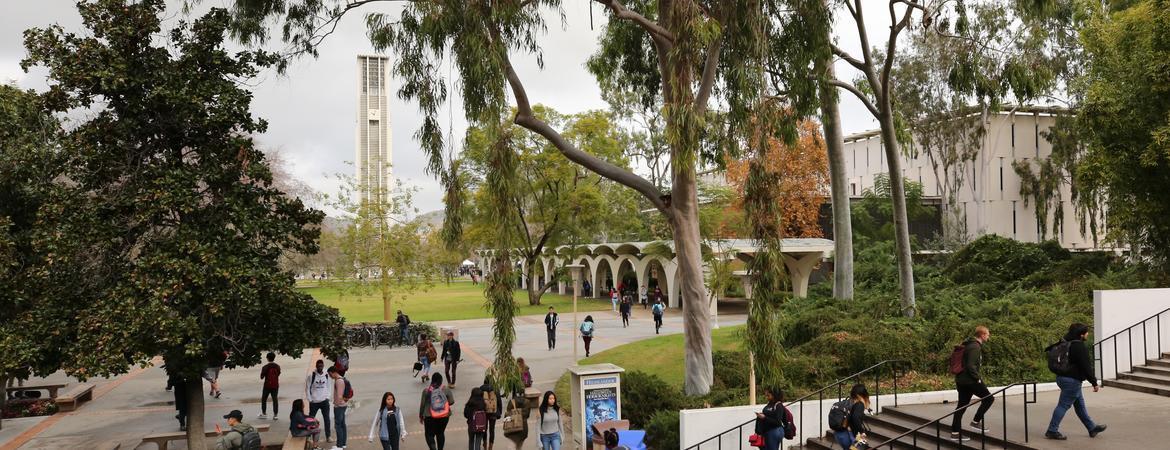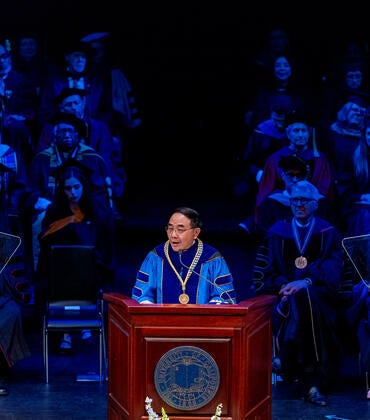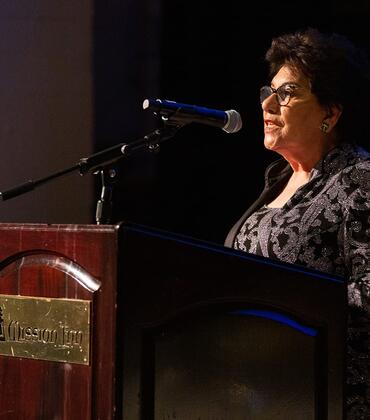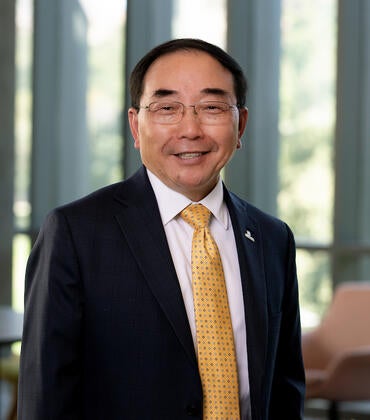
UC Riverside surpassed its $300 million goal on Sept. 10 for its first comprehensive fundraising campaign, “Living the Promise: The Campaign for UC Riverside.”
Although the overall dollar goal has been reached, the campaign isn’t yet over. The effort, which was publicly launched on October 15, 2016, will close on Dec. 31, 2020, and university fundraisers hope to encourage greater participation from UCR alumni and friends, particularly in support of students.
“This is a critical milestone for UCR, especially for a first campaign with an ambitious target,” Chancellor Kim Wilcox said. “The success of Living the Promise will be manifest in the experience of UCR’s students and in the excellence of UCR’s research.”
Higher education philanthropy across the nation has slowed during the pandemic, and economic contractions have historically decreased fundraising — giving to colleges and universities dropped 11.7% during the Great Recession of 2008. But at UCR, private support increased by 21% this past year.
UCR has experienced a fundraising surge in recent months — especially heartening given other demands on donor resources and the campaign’s focus. Development priorities have included funding for key programs, faculty research, student support, and facilities.
As a consequence of the COVID-19 pandemic, college graduates nationally are facing diminished job prospects and urgent financial needs.
Vice Chancellor for University Advancement Peter Hayashida said fundraisers hope to build momentum for an unparalleled student experience in the closing months of Living the Promise.
“The wind is at our backs and UCR’s need for private support will not end in December,” Hayashida said. “Our team will expand its focus on students as we prepare for future comprehensive fundraising campaigns.”
Private fundraising has become essential for public universities, which once were funded largely by taxpayers. State support for University of California campuses dropped from 84% in 1990 to 42% at the beginning of 2020 – before the pandemic’s unprecedented strain on state revenues.
The perception of continued robust public funding is an obstacle to fundraising campaigns such as Living the Promise.
“Many still believe that because we’re a public university, the state pays the bills,” UCR alumna and Associate Vice Chancellor for Development Marie Schultz said. “It’s not possible today to operate a public university on only state funding. Private fund-raising has become a critical part of sustaining excellence.”
The homestretch of the campaign – and the student-focused efforts to follow – come as the pandemic continues to stress the campus budget not only with state cuts, but also with the loss of revenue for housing, dining, and parking. A budget shortfall of $46 million is expected this year, with a larger reduction next year.
“Reaching our campaign dollar goal is an achievement of which we’re very proud. But we realize that the acute need for private donations lies ahead; perhaps more so than at any other time in the 66-year history of UCR,” Schultz said.
As UCR approaches the end of Living the Promise, Hayashida expressed gratitude for the more than 66,000 donors who gave during the campaign and applauded Schultz’s leadership and the efforts of the development team.
“We’ve reconnected previous supporters and engaged many new donors to fund the university’s mission during the campaign,” he said. “The visionary aspirations of academic leaders and unflagging support from UCR Foundation trustees and other key volunteers brought us to this remarkable moment in our fairly short history.”
For more information on the campaign, including on giving opportunities, visit the Living the Promise campaign website.



